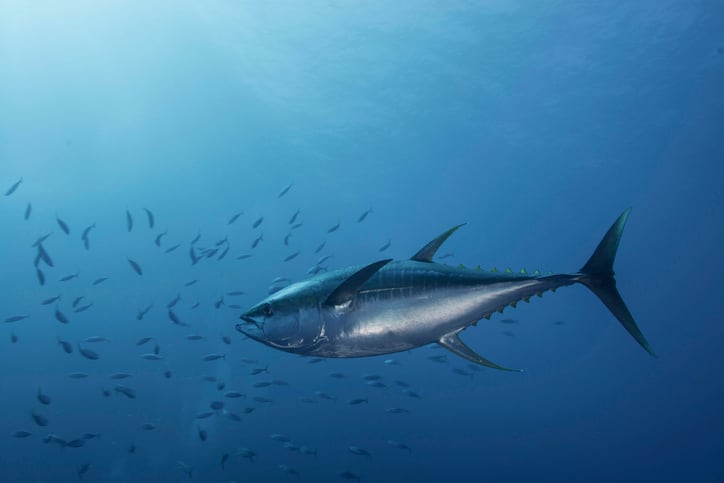The intervention comes as the International Seabed Authority (ISA) meets in Kingston, Jamaica, to discuss proposals by Canada's The Metals Company to exploit seabed minerals in the Pacific.
According to the mining company, the ocean floor is potentially rich in metals like nickel and cobalt which are used as electric vehicle batteries – so their extraction will support the global energy transition.
But environmental groups warn the scheme could cause irreparable damage to marine systems and they expect the proposals will be put on hold by the ISA, which is the UN body regulating the sector.
The meeting follows the July 9 expiration of a landmark two-year rule calling for the ISA to set regulations on deep-sea mining, which could set the stage for exploitation to begin immediately.
More than a dozen ISA member countries have already called for a pause or ban on deep-sea mining operations around the globe, including France, Germany, Spain, Switzerland, New Zealand, Palau, Fiji, Costa Rica, though Norway recently announced plans to open up 280,000 square kilometres to exploration.
The seafood industry has now joined the debate. The Global Tuna Alliance, whose 48 industry partners account for 32% of the global tuna trade, and the Sustainable Seafood Coalition, which represents 45 UK seafood organizations, are among the signers of a letter calling for a pause in deep-sea mining development until the socioeconomic and environmental impacts can be more thoroughly examined.
The Global Tuna Alliance warns that deep-sea mining “poses a threat to the ocean and its inhabiting life. While the extent of deep-sea mining impacts is yet to be determined, it will certainly lead to significant habitat destruction and biodiversity loss, with many potential impacts on fisheries and seafood supply.”
Daniel Suddaby, executive director at Global Tuna Alliance, added: “In the vast expanse of the high seas, critical for tuna species, we find ourselves sailing into uncharted territory with the unknown risks posed by deep-sea mining.
“From threats of prey food shortages due to disrupted midwater ecosystems to the potential upheaval of migration patterns caused by mining disturbances, we must navigate this uncertain landscape with caution. With climate change scenarios further complicating the picture, we cannot underestimate the stakes involved.”
The letter was issued alongside new research, published in the Nature Sustainability journal, showing that bigeye, skipjack and yellowfin tuna fisheries in the Eastern Pacific Ocean will increasingly overlap with projected deep-sea mining operations as climate change adjusts the range of these highly migratory species.
This points to potential increased conflict over and impacts on some of the world’s most valuable and important fisheries if deep-sea mining moves forward.
The study focuses on the Clarion-Clipperton Zone of the Pacific Ocean, a maritime region southeast of Hawaii containing 1.1 million square kilometres of deep-sea mining exploration contracts.
“The high seas harbour a trove of biodiversity, and there are critical sectors of our economy that depend on this biodiversity,” said study co-author Dr. Juliano Palacios Abrantes from the University of British Columbia. “There is already uncertainty about the impact of climate change on the health and geographic range of tuna. Deep-sea mining will only add to this uncertainty, further threatening tuna species and associated fisheries.”
The study’s lead author Dr. Diva Amon from the Benioff Ocean Science Laboratory at the University of California, added: “We already have the triple crises of climate change, biodiversity extinction and pollution because we have failed to acknowledge and account for the risks of industrial activities. We can’t just hold our breath and hope that adding deep-sea mining, with its potentially significant environmental risks, will be okay.”
The Global Tuna Alliance’s statements follow a push from more than 800 marine science and policy experts from over 44 countries worldwide calling for a moratorium. The Deep Sea Conservation Coalition has also called for a freeze on deed-sea mining.
According to The Metals Company, however, the clean energy transition will require trade-offs. It claims that “billions of tonnes of metal will be extracted from the planet over the next 30 years to make this transition possible,” adding: “The abyssal seafloor carries 300 to 1,500 times less life and stores 15 times less carbon than ecosystems on land. If we source battery metals from seafloor nodules, we could reduce destruction of more biodiverse ecosystems, such as rainforests, which play a vital role in the earth’s climate cycle."





